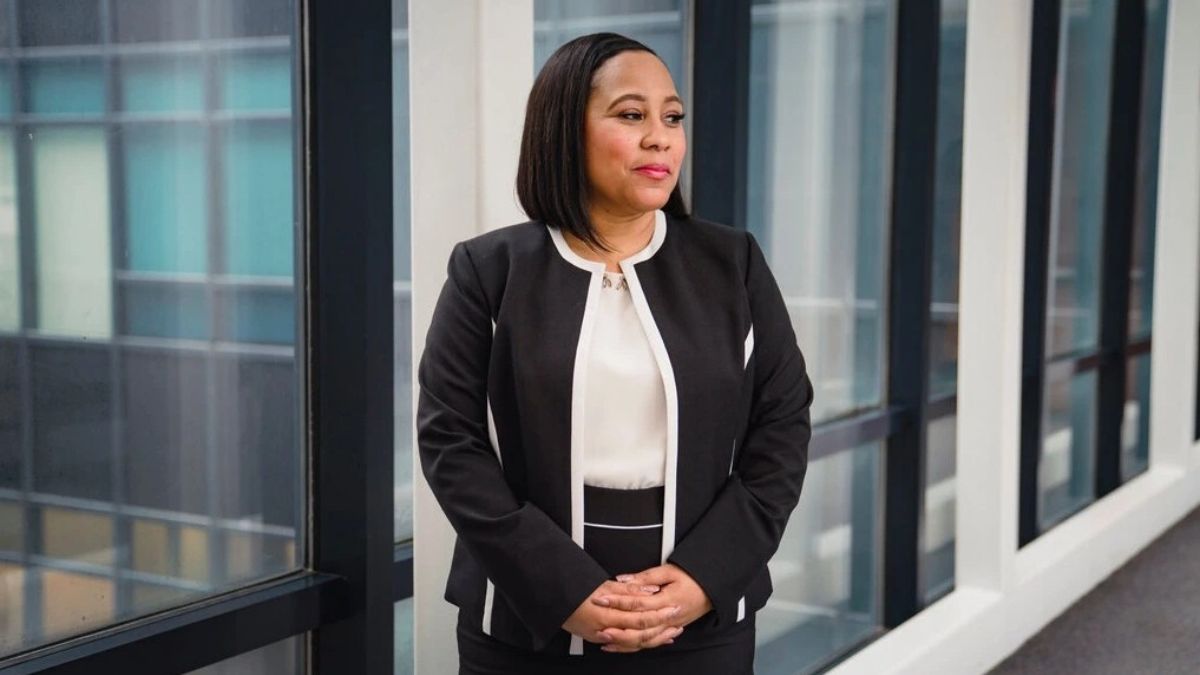(Photo by Alex Slitz / POOL / AFP) (Photo by ALEX SLITZ/POOL/AFP via Getty Images)
by Hiram Jackson
Fulton County District Attorney Fani Willis arrives for the final arguments in her disqualification hearing at the Fulton County Courthouse on March 1, 2024, in Atlanta, Georgia. Fulton County Superior Judge Scott McAfee is considering a motion to disqualify Willis over her romantic relationship with Special Prosecutor Nathan Wade, whom she appointed as special prosecutor in the election interference charges against former president Donald Trump.
Fulton County District Attorney Fani Willis appeared to be a promising prosecutor who was exceptionally qualified to bring former President Donald Trump to reckoning for seeking to overturn election results in Georgia’s 2020 presidential election process. The thought of a self-assured determining and accomplished Black woman determining his fate and toppling his reign looked like divine justice.
Although Willis showed Herculean strength in bringing RICO charges against the perpetrator of the “Big Lie” and ultimately indicting Trump and 18 of his closest friends and political allies, her professional conduct has become the cornerstone of the entire ordeal.
RELATED: 5 Black Women on the Frontlines of Saving Democracy
Judge Scott McAfee, 34, is expected to rule by the end of this week whether, as The New York Times put it, “to disqualify Ms. Willis on the grounds that a romance she had with Nathan Wade, the lawyer she hired to run the case, created an untenable conflict of interest.”
But the vigor with which Trump and his supporters have sought to disqualify Willis from the legal proceedings against him and his co-defendants is next-level political theater designed to discredit Willis by leaning into racist stereotypes of Black women as hypersexual, hostile, aggressive, incompetent, and unprofessional.
“I’m never surprised when I’ve seen Donald Trump attacking women, especially Black women. This is who he is,” Senator Raphael Warnock, a Democrat from Georgia, told CNN’s “State of the Union” on Sunday.
Indeed, Black women in positions of power — like Vice President Kamala Harris, U.S. Supreme Court Justice Ketanji Brown Jackson, and former Harvard University President Claudine Gay — are often targets in America.
The standard is suddenly different now because Willis is pursuing charges against Trump.
A statement released on Monday by a coalition of more than 100 prominent Black women, including former Atlanta mayor Shirley Franklin and civil rights leader, Helen Butler called out how “When Black women ascend to positions where their voices can be heard, their presence seen, and their power felt, it often unsettles certain individuals in this country.”
The coalition noted, “We knew that the first Black woman to become the district attorney in Fulton County, Georgia, would face challenges, especially when prosecuting powerful men.”
The statement pointed out that folks weren’t putting Willis’ personal life under the microscope “when she prosecuted and locked up Black teachers, or when she indicted Black gang members.”
But the standard is suddenly different now because Willis is pursuing charges against Trump.
“Remove the unfair burdens placed on Black women and stop subjecting us to higher standards than others. We are not Wonder Woman,” the coalition wrote. No doubt, Black people — especially those of us who know it’s true we have to be “twice as good” at our jobs — are angry with Willis. She didn’t appreciate just how volatile her position is and she underestimated how her romantic relationship with special prosecutor Nathan Wade would impact the proceedings against Trump. But we would be wrong to villainize her for her indiscretion.
The Willis-Wade relationship is controversial, but it shouldn’t be a get-out-of-jail-free card for Trump and the other defendants in the RICO case. According to Georgia law, a prosecutor is disqualified from a case due to a “conflict of interest” when the prosecutor’s conflicting loyalties could prejudice the defendant, leading to an improper conviction. This romance doesn’t rise to that standard.
The district attorney’s predicament is not a case of “white people do it all the time” either, as critics of all colors have admonished Willis for her affair with her colleague.
Should Willis have seen this level of scrutiny coming? Yes.
Political operators have been working against the popular prosecutor since the onset of the election tampering investigation. One month after the August 2023 indictments against Trump and his allies, Republican agents began putting pressure on Georgia’s governor, Brian Kemp, to convene a legislative session to investigate Willis. Kemp refused.
A month later, in September 2023, Newsweek published an article, “Four Ways Georgia Republicans Could Remove Fani Willis.” None of the four tactics — being indicted for a felony, impeachment by a Georgia Senate vote, recall, or being found unable to fulfill her constitutional and statutory duties — applies to Willis’ situation.
But a love affair opened the door to removal from the case against Trump, which without Willis (and Wade) will probably result in acquittal.
Should Willis have seen this level of scrutiny coming? Yes. She was aggressively pursuing and caught a fiendishly “big fish.” This is the man who called the Jan. 6 insurrection, “a beautiful day.”
But what did she really do?
According to mainstream media, she may have committed an indiscretion so egregious that it may disqualify her from prosecuting the Trump case. The actual indiscretion is that she has the gall to indict a former president. Trump and his allies have achieved what they intended to do: demean the prosecutor and derail the judicial process.
Whichever way the judge rules, the damage is done, and we can only hope the fallout doesn’t affect our democracy — or other powerful Black women who have worked so hard for a seat at the table.
Hiram Jackson is the CEO & Publisher of Real Times Media, which includes The Michigan Chronicle, a partner in the Word In Black collaborative

